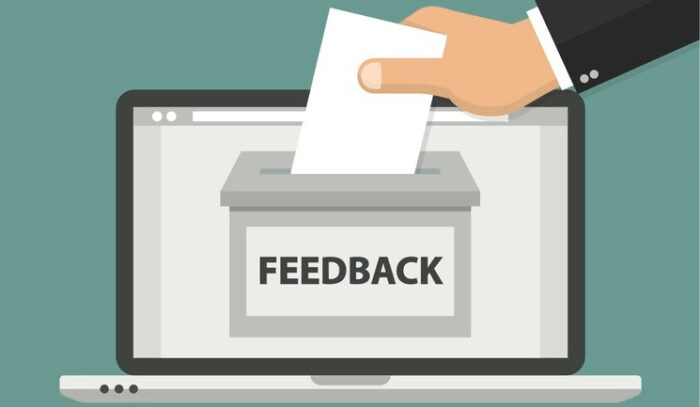John Doe
General SurgeonPretium saepe pariatur ornare cillum repudiandae inceptos iaculis cumque vulputate sequi neque quos exercitation aliquip interdum, veniam? Aute error, elit!



BUILDING MODERN DAY DOCTOR-PATIENT RELATIONSHIP AND IMPORTANCE OF COLLECTING PATIENT’S FEEDBACK BY THE HOSPITALS
In medicine we’ve long believed that “doctor knows best and patient needs to follow him/her diligently.” For healthcare providers, excellent healthcare is having competently performed a surgery or having used their medical knowledge to make life-saving diagnostic and treatment decisions. But when we ask the patients how they define ‘excellence’, they have a very different response. The ‘patient experience’ is formed by everyone who comes into contact with the patient along that journey, from front-desk receptionists, ward attendants to the nurses and doctors who provide direct care. Even the physical and virtual environments in which patient-provider touch points occur leaves an impression.
Opinions are formed by every variable, from the efficiency with which appointments are scheduled and completed to the quality of the technology employed to diagnose and treat the patient to the comfort and décor of the facilities where care is delivered.
WHAT IS PATIENT FEEDBACK
Patient feedback consists of the views and opinions of patients and service users on the care they have experienced. Feedback is critical for all healthcare providers to understand how their patients perceive them. This, in turn, helps improve the quality of care and patient satisfaction — and ultimately aids in new patient acquisition and retention. Once all of this is working in a virtuous cycle, healthcare practices will see increased revenue and growth.
WHAT PATIENTS WANT
ADVANTAGES OF COLLECTING PATIENT’S FEEDBACK
WAYS OF COLLECTING FEEDBACK:
Collecting patient feedback can be implemented in various ways: by means of phone surveys, via written surveys, via personal interviews or interviews of focus groups. Written surveys are very cost effective and reliable, and they are the most popular. Phone interviews have been established to be similar in reliability, and their added benefit is that they enable researchers to probe for more specific and detailed information, which is also a great benefit in collecting patient feedback.
DO’S AND DON’TS OF THE FEEDBACK FORM:
HOSPITAL HELD VICARIOUSLY LIABLE FOR THE NEGLIGENT ACT OF ITS STAFF AND DEFICIENCY IN SERVICE
CASELAW
The Maharashtra State Commission has recently passed an order holding P.D. Hinduja National Hospital and its staff negligent for the falling of the patient, who had underwent spinal surgery, from her wheelchair in the Hospital premises and suffered a fracture. The Hospital has been held vicariously liable for the negligent act of its staff and deficiency in service, thereby, directed \to pay a compensation of Rs. 3.5 lakhs to the patient.
The brief facts are that the patient who was suffering from multiple health problems had visited the Hinduja Hospital for her back pain. On 24.09.2012, Spine surgery was performed on her (decompression operation at the level of L3, L4 and L5). The patient was admitted in the Hospital for 5 days.
On 9th October, the patient visited the Hospital for a follow-up when she fell from the wheelchair while being taken to the OPD from the gate by one of the hospital staffs. She was attended by a resident doctor in the department of orthopaedics and X-ray was taken, which showed a displaced fracture of the tip of the lateral malleolus, for which ankle braces was advised and some medications were given.
A complaint was submitted to the Hospital Authority but no action was taken for the same against the hospital staff. Aggrieved by this, the patient filed a consumer complaint and claimed compensation of Rs. 16 lakh towards mental trauma and financial loss. The District Forum held the hospital liable and directed them to pay Rs. 1 lakh as compensation.
However, the Hospital challenged the Forum’s decision before the State Commission on the ground that there is no evidence to show that the patient had a fall in the Hospital and that the name of the security guard was not known to the Complainant and there is no justification for claiming the compensation. The State Commission observed that it is the duty of the Hospital to provide proper services to the patients and that patient safety is very important aspect when any patient enters the premises of the hospital and it is a legal responsibility of the Hospital to protect patient’s safety.
The State Commission held that in the instant case, for the irresponsible and negligent behaviour of the hospital staff, maybe by permanent or contract employee of the Hospital, the Hospital is vicariously liable for the negligent acts of its staff working in the premises of the Hospital. Subsequently, the forum directed the Hospital to pay a compensation of Rs. 3.5 lakh to the Complainant.
No Related Post